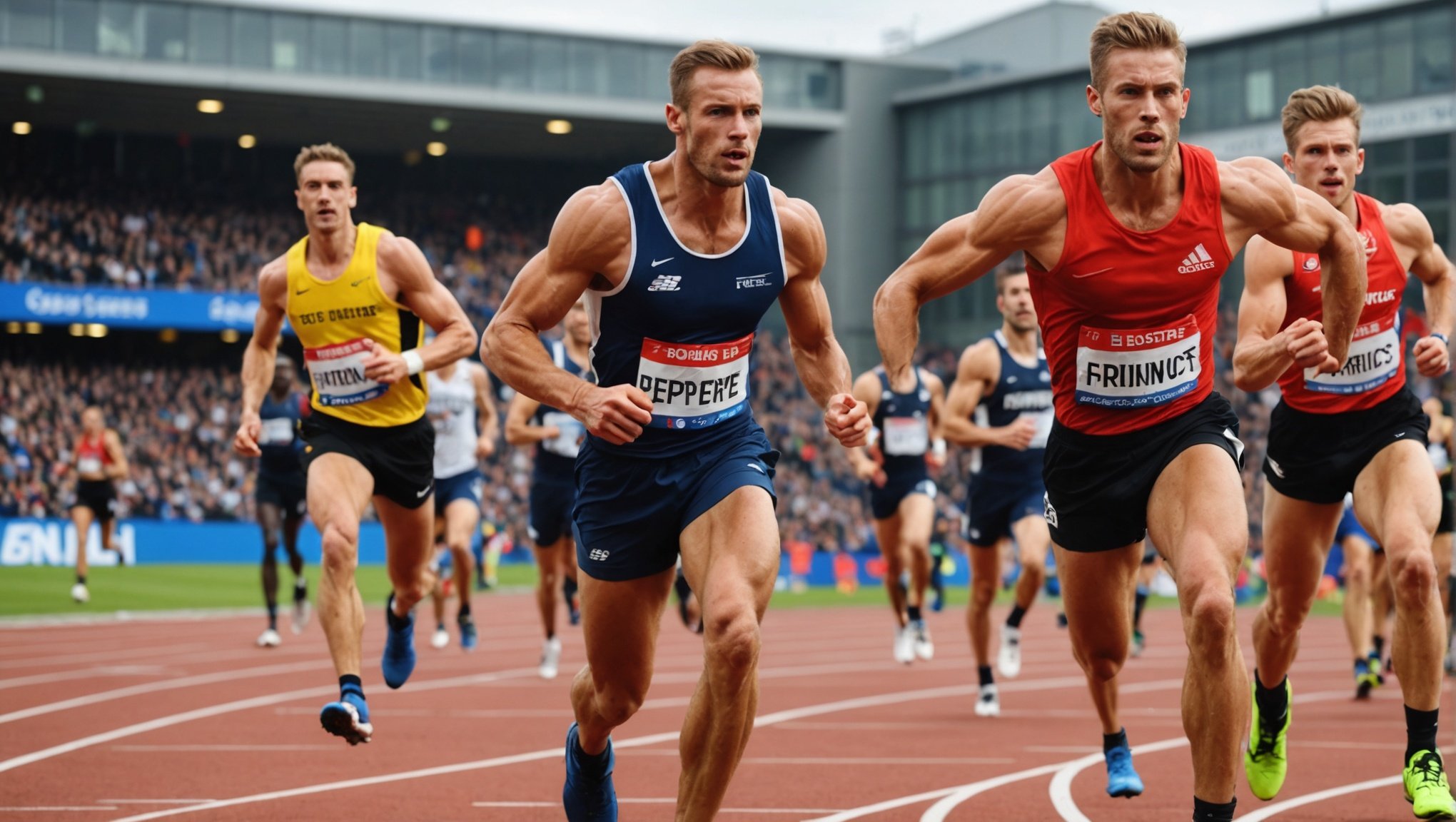Overview of Cutting-Edge Trends in Sports Nutrition
In recent years, advancements in sports nutrition have revolutionized how athletes enhance their performance. As the field evolves, understanding these cutting-edge trends is crucial for athletes striving to optimize their abilities. Sports nutrition advancements now focus on personalized approaches, backed by innovative research, guiding athletes toward peak performance.
Current nutrition research emphasizes the importance of addressing athletes’ unique nutritional needs. This personalized nutrition approach involves tailoring dietary strategies based on individual characteristics such as genetics, metabolism, and specific training demands. By customizing nutrition plans, athletes can achieve improved energy levels, recover faster, and reduce the risk of injuries.
Also read : Exploring the Legal Landscape of Sports Contracts for Athletes in the UK
A key focus in recent studies is the development of innovative supplementation strategies. These aim to enhance the bioavailability of nutrients, ensuring athletes receive optimal benefits from their diets. Advancements in nutrient timing, such as strategic carbohydrate and protein intake around training sessions, play a critical role in maximizing performance and recovery.
Additionally, cutting-edge trends seek to leverage technology, providing athletes with real-time data on their nutritional status. This data-driven approach enables precise adjustments to nutritional practices, offering athletes a strategic edge. As sports nutrition continues to evolve, staying informed on the latest trends will help athletes and coaches make informed decisions, ensuring they remain at the forefront of performance enhancement.
This might interest you : Exploring the Latest Eco-Friendly Strategies for Turf Management in UK Sports Facilities
Benefits of Advanced Nutrition for UK Athletes
Understanding the nutritional benefits is paramount for UK athletes aiming for peak performance. Specific nutrients play a crucial role in athlete performance enhancement and recovery improvement. For instance, protein aids muscle repair and growth, making it vital post-exercise. Meanwhile, carbohydrates provide the energy reserve necessary for sustained exertion during training and competitions.
Macronutrients, such as proteins, carbohydrates, and fats, form the core of any athlete’s diet. Proteins are essential for muscle maintenance, while carbohydrates are crucial for energy. Fats, often misunderstood, support cellular health and hormone production. On the other hand, micronutrients like vitamins and minerals complement macronutrients by boosting immune function and reducing inflammation.
Consider case studies where athletes have tailored their diets to optimize performance: A professional cyclist might increase carb intake before a race for enhanced stamina. Similarly, a sprinter might focus on proteins for faster recovery post-race. These examples highlight how well-balanced nutritional plans can lead to undeniable improvements in athletic prowess.
Ultimately, advanced nutrition is a strategic approach by UK athletes to outperform the competition, ensuring they sustain high energy levels and recuperate efficiently, leading to fewer injuries and a better competitive edge.
Insights from Experts in Sports Nutrition
In a world where optimal performance is crucial, expert opinions on nutrition are invaluable. Sports nutritionists offer invaluable nutrition insights on crafting effective athlete dietary strategies.
Interviews with Sports Nutritionists
Sports nutritionists interviewed shared profound insights on effective dietary practices for athletes. They emphasised the role of tailored nutrition in enhancing performance and recovery. Nutritionists highlighted the importance of a balanced intake of macronutrients and micronutrients, pointing out how protein aids in muscle repair while carbohydrates fuel sustained energy levels.
Expert Analysis of Recent Trends
Recent dietary trends have seen a shift towards plant-based diets, underscoring the growing preference among athletes. Experts analysed these trends, highlighting the benefits, such as improved heart health and quicker recovery times due to anti-inflammatory properties in plant-based foods. They also discussed how these changes align with growing environmental awareness among sports professionals.
Practical Nutritional Strategies for Athletes
Nutrition strategies for athletes differ based on their level and type of sport. Beginners might focus on foundational nutrition and proper hydration, while elite athletes require a precision-tailored approach. The experts recommend:
- Prioritising nutrient-dense foods over empty calories
- Scheduling meals around training sessions for optimal fuel and recovery
- Regular consultations with nutritionists to adapt strategies as needed
These expert-backed strategies enhance both immediate performance and long-term athletic development.
Dietary Recommendations for Optimal Performance
In maximising athletic potential, adhering to specific dietary tips and nutrition guidelines plays a crucial role. For various sports, achieving the right balance of nutrients such as proteins, carbohydrates, and fats is essential. Athletes typically require increased protein intake to support muscle repair and growth. Recommended daily protein intake may range between 1.2 to 2.0 grams per kilogram of body weight, depending on the sport and training intensity.
The importance of meal timing cannot be overstated. The optimal performance nutrition involves consuming a balanced meal containing carbohydrates, proteins, and healthy fats about 2-4 hours before exercising. Post-workout meals should focus on quick-digesting carbohydrates and protein to facilitate recovery and replenish glycogen stores.
Practical tips for meal preparation and planning include batch cooking and organising balanced meals, which saves time and ensures consistent intake of the necessary nutrients. Preparing snacks such as nuts, fruits, and protein bars in advance can help maintain energy levels throughout the day. Establishing a weekly meal plan can help athletes meet their nutrition guidelines consistently, ensuring they receive adequate nutrients to enhance performance and recovery, thus taking their athletic pursuits to the next level.
Supplements in Sports Nutrition
In the dynamic world of sports, supplements play a crucial role in enhancing athletic performance and recovery. Among the most popular sports supplements used by UK athletes are creatine, protein powders, and branched-chain amino acids (BCAAs). These supplements are often marketed as performance enhancers and recovery aids, but it’s essential to critically examine the evidence supporting their efficacy.
Creatine is one of the most researched supplements, with numerous studies affirming its potential in boosting short-term, high-intensity performance. Protein powders, including whey and plant-based options, are lauded for aiding muscle recovery and growth. BCAAs are said to assist in reducing exercise-induced fatigue, although further research is needed to determine their effectiveness conclusively.
Safety considerations and regulations are paramount in the realm of sports supplements. In the UK, these products are governed by strict regulations to ensure athlete safety. However, athletes must remain vigilant, as not all supplements are thoroughly tested before reaching the market. Consulting with a sports nutritionist and verifying supplements through the Informed-Sport program can help athletes make informed and safe choices.
When considering performance enhancers and recovery aids, it’s crucial to balance performance goals with health and safety regulations. Understanding the science behind these supplements can empower athletes to enhance their performance responsibly.
Impact of Sports Nutrition Trends on Athlete Health
Understanding the nutrition and wellness strategies athletes adopt is crucial for assessing their long-term health effects. Recent trends in sports nutrition emphasize precision and personalized dietary plans tailored to enhance performance and support injury prevention. But what are the long-term health implications for athletes?
Athlete health is directly influenced by their nutritional intake. A well-balanced diet supports muscular growth, tissue repair, and energy replenishment, contributing positively to their career longevity. However, emerging trends like high-protein, low-carb diets may put undue stress on vital organs if not monitored carefully, highlighting the need for balanced approaches.
Moreover, nutrition habits play a significant role in overall athlete wellness. Proper hydration, nutrient timing, and sustainable eating patterns not only improve performance but also sustain good mental health, reducing stress levels and enhancing mood stability.
Cutting-edge trends in sports nutrition, such as the increased use of supplements and meal timing protocols, could potentially reduce injury risks. By ensuring optimal intake of macro and micro-nutrients, these strategies aim to fortify bones, strengthen muscles, and accelerate recovery processes. Nonetheless, it’s essential that athletes maintain compliance with professionally-guided plans to safeguard their wellness and long-term health.
Practical Implementation of Nutrition Strategies
Integrating a personalized nutrition plan into an athlete’s routine can significantly enhance performance and overall wellness. It’s crucial to start with a detailed assessment of individual needs, considering factors like training intensity, age, and health goals. Begin by consulting with a nutritionist to tailor a plan that augments athletic performance while promoting a balanced lifestyle.
Developing a Personalized Plan
Establishing a step-by-step guide is essential. Identify specific nutritional goals based on your sport and personal needs. Include diverse food groups to meet macronutrient and micronutrient requirements effectively. Monitor progress and make adjustments as needed.
Integration into Daily Routines
Embedding nutritional changes into your daily routine is often challenging but rewarding. Gradually incorporate new dietary habits to allow the body to adapt. Seek balance by optimizing meal timings around workouts to maximize energy levels and recovery.
Overcoming Common Challenges
Athletes frequently face hurdles while adapting to new nutritional trends. A common issue is managing social settings that may not cater to specific dietary needs. It’s beneficial to plan meals ahead of time and communicate preferences in group settings. Stay open to experimenting with different foods and hydration strategies to discover what works best for enhancing performance.






